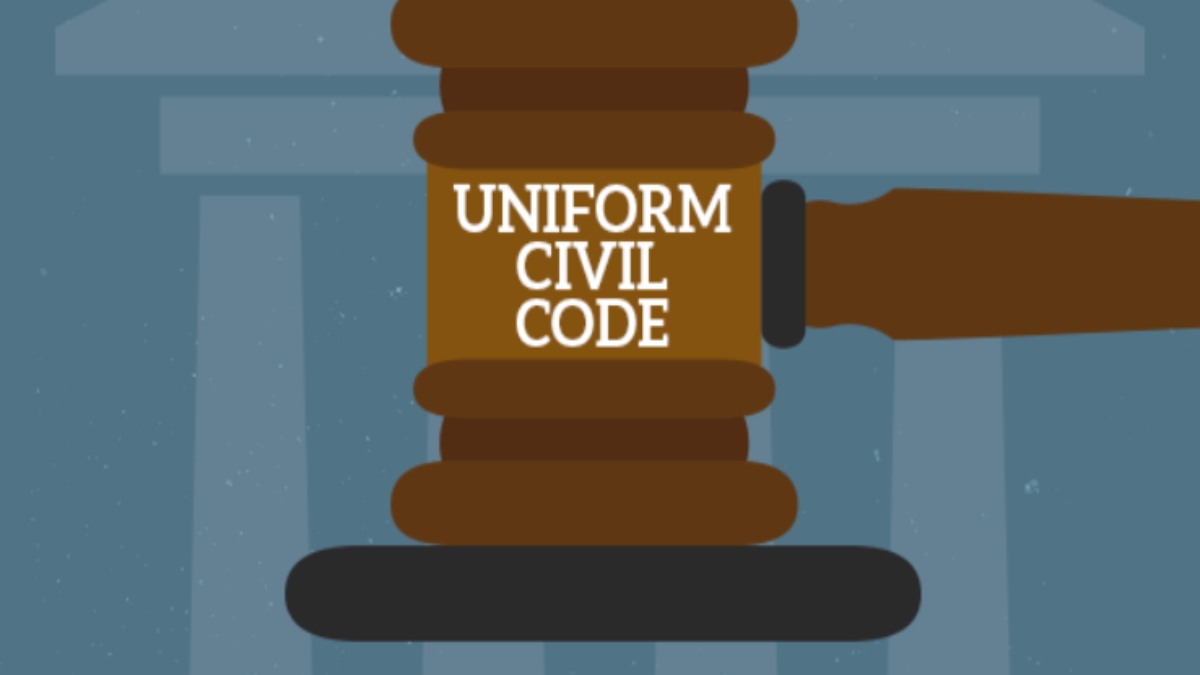The debate over a Uniform Civil Code (UCC) has ignited a flurry of opinions and emotions in recent times. Our great Indian tapestry weaves its diverse cultures, traditions and religions together. This has brought about distinct sets of personal laws by each community governing marriage, adoption, inheritance, divorce, maintenance and succession of property. The UCC, often seen as the holy grail of legal unification, aims to replace these personal laws with a singular, all-encompassing code applicable to all Indian citizens, irrespective of their religious background, ethnicity, etc. It simply signifies that every Indian citizen from any section of the society shall be treated equally in accordance with a common set of laws. However, beneath this lofty aspiration lies a complex tangle of challenges and opportunities.
Sneak Peek into the UCC
For the uninitiated, the discussion over UCC is not a matter of 2023. It has its genesis in the colonial era.
- Back in 1835
The UCC first emerged when a British government report underscored the need for unified legal code for contracts, crimes, and evidence in India. Nonetheless, the personal laws of different religions were exempted from this proposed codification. - From 1947 to 1985
While formulating the constitution post British Raj, Dr B.R. Ambedkar, Pandit Jawaharlal Nehru, Maulana Abul Kalam Azad and other visionaries staunchly supported UCC. Yet, its incorporation was into the Directive Principles of the State Policy (Article 44) owing to stiff resistance from religious conservatives and the prevailing lack of awareness among the masses back then. The issue resurfaced in 2019 following the petition of Shayara Bano, a Muslim woman whose husband divorced her under the triple talaq rule. The Supreme Court struck down triple talaq as unconstitutional, thereby, reinstating the debate over UCC again.
Advocating the Cause
1. To begin with, the Supreme Court in 2019 asked the state to put in their best efforts for introducing national uniform codification.
2. Even our honourable Prime Minister went vocal about the significance of Uniform Civil Code in Bhopal, stating that a nation like India “could not run on two laws”, although many, including the All India Majlis-e-Ittehadul Muslimeen chief, opposed this remark considering it an intent to strip the country of its diversity and pluralism.
UCC, in reality, is a political agenda with strong potential to reinforce secular principles in India. It eliminates the colonial strategy of divisive politics and promotes gender equality, which has become a significant point of discussion these days. For instance, this codification shall bring the curtains down on discriminatory practices like polygamy, inheritance restrictions for women, unequal property rights based on gender, and disinheritance of daughters. Its agenda includes providing more rights to women, regardless of their religion.
- The significance of comprehensive gender equality, irrespective of any discriminatory parameter, is evident. The UCC will supposedly serve as a potent means to realise this goal and also end prejudice imposed by family laws.
- Experts, in fact, affirm that the unified law will mitigate all other personal laws existing and bring together people from all castes, tribes and religions, including the Hindus and the Muslims, under one big umbrella.
- From the political perspective, vote bank politics before every election is likely to diminish with this national civil code of conduct.
- Change, being an evident and indispensable aspect, paves the way for adaptation, progress and evolution in every aspect of life. As most of the existing personal laws are based on old values prevalent hundreds of years ago, they are not completely relevant in the present day. A major change will likely happen with the uniform civil code.
- Nonetheless, the current administration of India reassures that this unified code shall bring more power to women, regardless of religion, and abolish all unfair religious laws prevalent to date.
- India’s desperate mission to become a progressive and developed nation will be accomplished when the society vouches for the same. Again, UCC is the way to go, say experts. Amidst a multitude of compelling positives in favour of the UCC, what restricts its implementation for the potential transformative changes that it can bring?
Navigating the Hurdles of UCC
The major bone of contention for this one-size-fits-all framework is India’s massive diversity in culture and traditions.
- There is a chance of potential upheaval that the proposed UCC may trigger. Critics currently fear the erosion of cultural identities and the deep-rooted customs that may inadvertently get trampled upon; this includes the indigenous traditions and conventions of the tribes too. The Uniform Civil Code, according to them, would ruin the beauty and distinctiveness of this country. So, that’s one argument against the UCC.
- The second obstacle comes from some sections in minorities who, owing to misrepresentation or lack of proper information, convincingly believe that this unified legal framework shall enforce majority views or Hinduism on them.
- In 2016, the Supreme Court received a petition from tribal organizations, such as the Rashtriya Adivasi Ekta Parishad, seeking protection for their communities’ customs, beliefs, and traditions against the potential impact of the unified civil code.
Present Scenario of Personal Laws
Christian Law: To obtain a divorce from husband, a woman has to prove adultery and cruelty against him.
Hindu Law: Obtaining a divorce requires the wife to provide evidence of both cruelty and desertion in addition to proving adultery. On the contrary, a husband can ask for divorce easily for adultery. In case of desertion, the period of separation must be 2 years before seeking divorce.
Muslim Law: Divorce for adultery is permissible only if a woman can establish her husband’s involvement in relations with morally questionable women or leading a disreputable lifestyle.
Anand Marriage Act: Adoption and divorce are not permissible for the Sikhs. The Hindu Marriage Act extends its coverage to individuals seeking divorce and even marriage registrations. Steering through the rough waters, the need of the hour is to adopt a forward-looking and progressive perspective by the people. Initiatives aimed at raising awareness, providing education and fostering sensitisation must be undertaken to effectively facilitate dialogue and encourage people to open up and grasp the essence of UCC.
The national code of conduct should embrace the finest aspects of diverse Indian traditions, culminating in a streamlined and easily manageable code that upholds transparency and simplicity in its administration. Of late, the Law Commission of India sought feedback from the public on the Unified Civil Code and received close to 80 lakh responses so far.
Beyond being a matter of emotional significance, this envisioned codification stands as a symbol of empowerment, dignity and equality for every individual, transcending the limitations that many personal laws have struggled to surmount. However, its strategic enforcement would require considerable efforts from judicial, administrative and legislative bodies along with communities themselves.
Alternatively, the major transformation can be incorporated gradually with an incremental approach. Involvement of all stakeholders, including political spearheads, religious leaders, constitutional experts and academia, is vital to navigate the intricate path towards a successful implementation of the UCC. This collaboration involves diverse perspectives, addressing various concerns, thereby, resulting in a more inclusive and well-rounded outcome. All things considered, gender-based discrimination should be non-existent immediately. Both men and women should have equal opportunities in all spheres, whether achieved through a Uniform Civil Code or the amendment of personal laws to align with contemporary societal norms.
Dr Ripon Bhattacharjee is Associate Professor, Department of Law, University of Engineering and Management, Kolkata. Niladri Mondal and Victor Nayak are Assistant Professors at the Department of Law, University of Engineering and Management, Kolkata.







